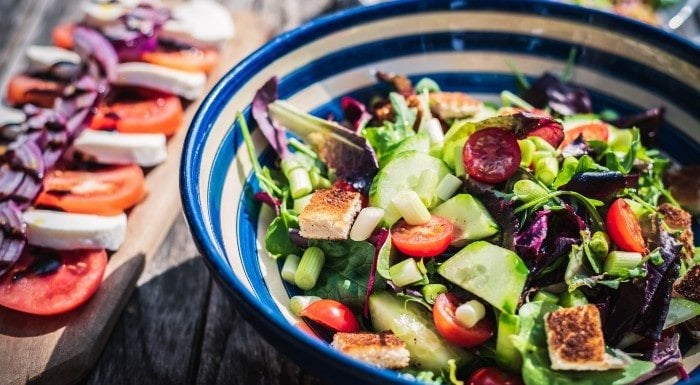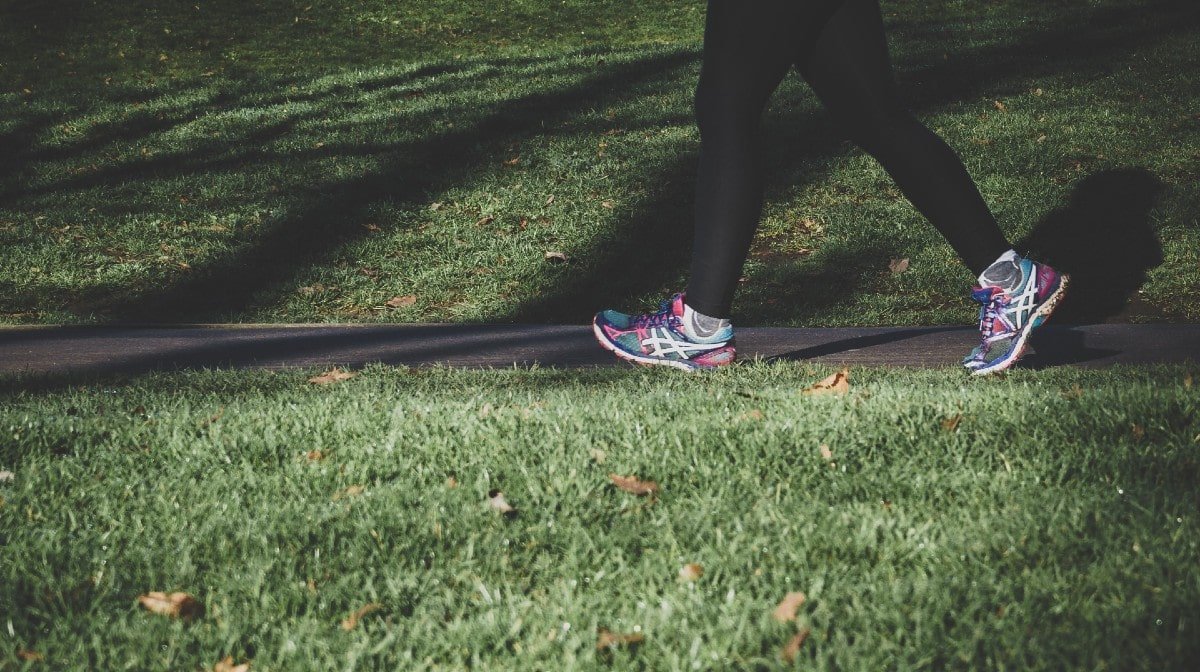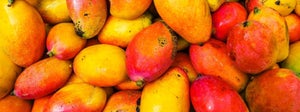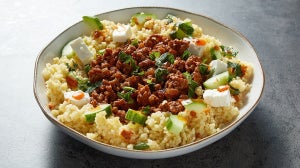
If it sounds too good to be true, it probably is.
You’ve likely seen headlines like “Lose 10 kilos in 10 days!”, “Eliminate belly fat with one trick”, or “Drop three dress sizes in one month!”. It’s hard to miss these extreme diet claims, especially during the new year - but they should raise a red flag when you see them. They're likely fad diets that won't work, won't be sustainable, and in the worst case, could compromise your health. So here's the key info on rapid weight loss diets, why they're so detrimental, and how to lose weight safely.Jump to:- What is rapid weight loss?
- Is rapid weight loss safe?
- How to lose weight safely
- How to calculate your calorie deficit

What is Rapid Weight Loss?
Any diet that claims to help you lose a significant amount of weight in a short period of time can be considered a rapid weight loss diet.
Research shows that a weight loss of 0.5-1kg per week is not only safe for your body, but also much easier to sustain over time.1 Whereas, losing 2kgs or more per week is a rapid rate of weight loss that could actually be dangerous in the long run.
Extreme low-calorie diets are based on the calorie balance weight loss method - but on a level that is far too restrictive. Any calorie intake less than 1200 per day can be considered an extreme low-calorie diet. Staying under this calorie level on a consistent basis may lead to rapid weight loss, but it also can make it difficult to obtain essential macros (protein, carbs, fat) and micronutrients (vitamins and minerals).
Very low-calorie diets should only be done under medical direction and supervision, when professionals can monitor your intake and how your body responds.
Starvation diets are an extreme form of calorie restriction - typically recommending you only consume water with some other common kitchen ingredients. There is no magic potion for weight loss - no matter what type of vinegar, citrus, or spice you add to your water. Without adequate calorie intake, you won’t have the energy to do anything that could actually help you lose weight.
Cleanses are another type of diet that promise rapid weight loss by only consuming certain drinks - typically juices, smoothies, or teas. These may lead to a quick loss of water weight, but are usually not nutritionally adequate to support your health long term.
While nutrient packed juices claim to “cleanse and reset your body”, we can only absorb so many vitamins and minerals each day - most of them are flushed quickly through your system. The best way to cleanse your body is to eat a varied, healthy diet consistently. Your kidneys and liver do all of the cleansing that your body needs.

Is Rapid Weight Loss Safe?
While following one of the fad diet patterns above might not cause you harm in the first few days, they can pose serious risks long-term. Without adequate nutrition you won’t be able to exercise and may even struggle to concentrate or complete your daily activities.Rapid weight loss has been shown to cause several medical complications the require treatment such as gallstones.2 Extreme weight loss can cause dehydration, electrolyte imbalances, and blood sugar control issues. Plus, you’ll likely feel weak, irritable, and can lose lean body mass (muscle).
How to Lose Weight Safely
The real "trick" to weight loss is a healthy lifestyle that combines eating less and exercising more to achieve a negative calorie balance.So let’s get back to the basics. Calories are a measure of energy, and carbohydrates, fat, and protein are the macronutrients that contribute calories as fuel for our body. Vitamins and minerals are examples of micronutrients that are also important for health. We burn a fair number of calories just going about our days, but exercise is often the key to help us burn more than we’re consuming.
Because all of the macronutrients play important roles in keeping our bodies functioning, be wary of diets that exclude entire food groups or are very restrictive.Diet culture might tell you that fruit is too high in sugar or that some vegetables have too many carbs, but carbs and sugars aren’t inherently “bad”. Sure, you can get too much sugar if you eat three bushels of bananas a day - but sugar usually only causes problems when it's refined in things like desserts, chocolates and sweets, and usually only if you're eating them excessively.A healthy calorie deficit that helps us lose weight gradually and sustainably is key to weight loss.
How to calculate your calorie deficit
It takes a deficit of about 500 calories per day to lose approximately 1 pound per week. That 500-calorie deficit can be a combination of eating less and moving more. If you’re already extremely active in the gym, you might need to focus more on your calorie intake. If your calorie intake is already at a reasonable level, you might need to work harder in the gym to see weight loss. Most people need a combination of both approaches.
Losing 1-2 pounds per week has been shown to be a safe rate of weight loss that people can usually maintain over time.1 Use our macro calculator if you need somewhere to start. Counting calories and exercising takes a lot of work, but feels the most satisfying when you reach your goals.
Calculate a healthy calorie deficit in 3 steps here...
Take Home Message
While rapid weight loss claims are appealing, they usually are too good to be true. Extreme diets can be dangerous and compromise good nutrition habits. Learning how to balance your energy intake and your exercise are the most important skills for successful weight loss and overall health.So if you are looking to lose weight, keep a calorie deficit, squeeze in an extra walk where you can, and learn some new healthy recipes that you enjoy eating.
READ THESE NEXT:

A Healthy Shopping List For Muscle Gain & Weight Loss
These are the foods that need to be on everyone's list.

Does Green Tea Help You Lose Weight?
*Adds green tea to shopping basket*

11 Ways To Break A Weight Loss Plateau
A break from your diet could be what's needed.
Our articles should be used for informational and educational purposes only and are not intended to be taken as medical advice. If you're concerned, consult a health professional before taking dietary supplements or introducing any major changes to your diet.
- Wing, R. R., & Hill, J. O. (2001). Successful weight loss maintenance. Annual review of nutrition, 21(1), 323-341.
- Shiffman, M. L., Sugerman, H. J., Kellum, J. M., Brewer, W. H., & Moore, E. W. (1991). Gallstone formation after rapid weight loss: a prospective study in patients undergoing gastric bypass surgery for treatment of morbid obesity. American Journal of Gastroenterology (Springer Nature), 86(8).

Claire is a Registered Dietitian through the Academy of Nutrition and Dietetics and a board-certified Health and Wellness Coach through the International Consortium for Health and Wellness Coaching. She has a Bachelor of Science in Biology and a Master’s degree in Clinical Dietetics and Nutrition from the University of Pittsburgh.
Talking and writing about food and fitness is at the heart of Claire’s ethos as she loves to use her experience to help others meet their health and wellness goals.
Claire is also a certified indoor cycling instructor and loves the mental and physical boost she gets from regular runs and yoga classes. When she’s not keeping fit herself, she’s cheering on her hometown’s sports teams in Pittsburgh, or cooking for her family in the kitchen.
Find out more about Claire’s experience here.
Related Articles








